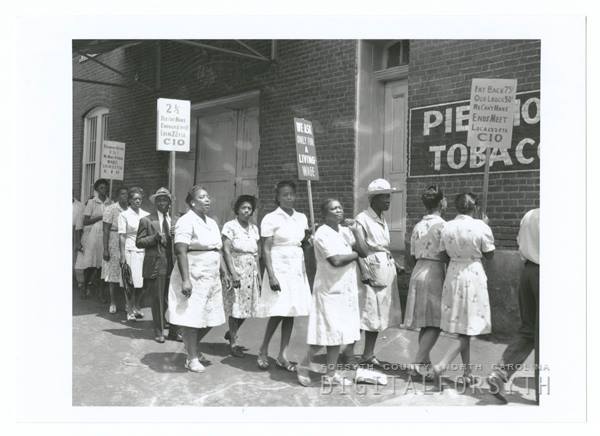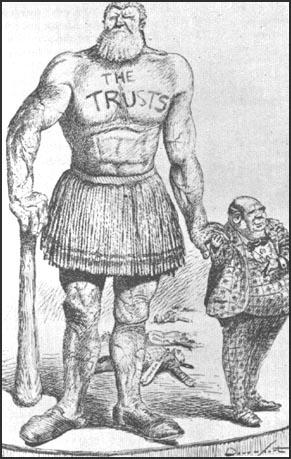The Clayton Act regulates general practices that may be detrimental to fair competition. The first of these major measures declared illegal all combinations that restrained trade between states or with foreign nations.
The Federal Trade Commission Act which created the FTC and the Clayton Act.

What was the sherman antitrust act. It was named for Senator John Sherman. The Acts purpose was to promote economic fairness and competitiveness and to regulate interstate commerce. When Theodore Roosevelts first administration sought to end business monopolies it used the Sherman Anti-Trust Act as the tool to do so.
Congress to prohibit trusts. It falls under antitrust law. The Sherman Antitrust Act of 1890 was the first measure passed by the US.
Congress to prohibit trusts monopolies and cartels. Three years later Congress passed the Sherman Anti-Trust Act. The Sherman Antitrust Act of 1890 was the first measure passed by the US.
It was proposed and passed in 1890 by Ohio Senator John. Congress to prohibit trusts. Both the Sherman Antitrust Act and the Clayton Act are federal laws.
Congress passed the first antitrust law the Sherman Act in 1890 as a comprehensive charter of economic liberty aimed at preserving free and unfettered competition as the rule of trade In 1914 Congress passed two additional antitrust laws. The Sherman Antitrust Act Sherman Act July 2 1890 ch. This law known as the Sherman Antitrust Act taking its name from its author John Sherman was passed by Congress early in July.
17 was the first United States Federal statute to limit cartels and monopolies. In 1890 the United States government passed into law the Sherman Anti-Trust Act. What was the immediate impact of the Sherman Antitrust Act.
Sherman Antitrust Act Definition Sherman Antitrust Act refers to the legislation enacted by the US Congress to tackle monopolistic tendencies that reduced the competition and interfered with trade and commerce. Prior to its enactment various states had passed similar laws but they were limited to intrastate businesses. Every contract combination in the form of a trust or otherwise or conspiracy in restraint of trade.
It outlaws both formal cartels and attempts to monopolize any part of commerce in the United States. It was named for Senator John Sherman of Ohio who was a chairman of the Senate finance committee and the Secretary of the Treasury under President Hayes. Approved July 2 1890 The Sherman Anti-Trust Act was the first Federal act that outlawed monopolistic business practices.
Key Takeaways The Sherman Antitrust Act is the first measure passed by the US. Sherman Antitrust Act Sherman Antitrust Act 1890 first measure passed by the US. It was designed to prohibit unfair competition among large firms.
This legislation was an anti-trust act authorizing the federal government to break up any businesses that prohibited competition. Rather than define specific illegal practices the Sherman Act contained much more general and ambiguous language. The Sherman Anti-Trust Act of 1890 became law while Theodore Roosevelt was serving on the US.
The act is named after then US. It was the congressional response to evidence of growing public dissatisfaction with the. The Sherman Antitrust Act.
Congress to prohibit trusts. Civil Service Commission but it played a large and important role during his presidency. The Sherman Antitrust Act is a federal law prohibiting any contract trust or conspiracy in restraint of interstate or foreign trade.
The Sherman Antitrust Act was enacted in 1890 to curtail combinations of power that interfere with trade and reduce economic competition. Senator John Sherman of Ohio. The Sherman Antitrust Act was the first major legislation passed to address oppressive business practices associated with cartels and oppressive monopolies.
The Sherman Antitrust Act was the first federal law that placed limits on concentrations of power deemed harmful to trade and competition.
Clayton Antitrust Act law enacted in 1914 by the United States Congress to clarify and strengthen the Sherman Antitrust Act. 730 enacted October 15 1914 codified at 15 USC.
 Oct 15 1914 Clayton Antitrust Act Enacted Zinn Education Project
Oct 15 1914 Clayton Antitrust Act Enacted Zinn Education Project
Clayton Antitrust Act of 1914.
.jpg)
The clayton antitrust act of 1914. The Clayton Antitrust Act of 1914 PubL. Mergers and acquisitions when they may substantially reduce competition. Some of the provisions of the Clayton Antitrust Act appear here.
The Clayton Act sought to prevent anticompetitive practices in their incipiency. Trusts etc in restraint of trade illegal. Antitrust law regime by seeking to prevent anticompetitive practices in their incipiency.
1227 29 USC. Serving on the board of. 1227 29 USC.
5253 was a part of United States antitrust law with the goal of adding further substance to the US. Whereas the Sherman Act only declared monopoly illegal the Clayton Act defined as illegal certain business practices that are conductive to the formation of monopolies or that result from them. The Clayton Antitrust Act United States Congress 1 OVERVIEW The Clayton Antitrust Act 1914 forbade several practices that destroyed competition or prevented new businesses from forming.
The Clayton Act referred to in subsec. The bill passed the House with an overwhelming majority on June 5 1914. Note also that 13a 13b and 21a comprise the Robinson-Patman Price Discrimination Act 1936.
When a company is suspected of. Add only page 1 to activity. The Clayton Antitrust Act of 1914 October 15 1914 ch.
Wilson delivered on his promise with passage of the Clayton Anti-Trust Act on October 15 1914. The vague language of the latter had provided large corporations with numerous loopholes enabling them to engage in certain restrictive business arrangements that though not illegal per se resulted in concentrations that had an. The Clayton Antitrust Act 1914 The Clayton Antitrust Act is comprised of 12 13 14-19 20 21 22-27 of Title 15.
The newly created Federal Trade Commission enforced the Clayton Antitrust Act and prevented unfair methods of competition. Sections 15c-15h and 18a compromise part of the Hart-Scott. B is act Oct.
Also passed in 1914 the Clayton Act regulates business activities and defines unethical business practices including monopolies. The Clayton Antitrust Act also protects individuals by allowing lawsuits. The Clayton Antitrust Act.
Clayton Antitrust Act 10151914. 12-27 outlaws the following conduct. 730 as amended which is classified to sections 12 13 14 to 19 21 and 22 to 27 of this title and sections 52 and 53 of Title 29 Labor.
Conditioning sales on exclusive dealing. The Clayton Antitrust Act of 1914 codified at 15 USC. 730 codified at 15 USC.
Some sections have been edited or eliminated because of space concerns. Aside from banning the practices of price discrimination and anti-competitive mergers the new law also declared strikes boycotts and labor unions legal under federal law. 5253 was enacted in the United States to add further substance to the US.
Union contracts also resulted in shorter days giving workers some leisure hours often for the first. Intended to strengthen earlier antitrust legislation the act prohibits anticompetitive mergers predatory and. The Clayton Antitrust Act of 1914 as Amended.
That regime started with the Sherman Antitrust Act of 1890. Add all pages of this document to activity. The Clayton Antitrust Act is a law enacted in 1914 by the United States Congress to clarify and strengthen the Sherman Antitrust Act of 1890.
The Clayton Act declared that unions were not unlawful under the Sherman Anti-Trust provisions and workers compensation bills were passed in most states. United States Code TITLE 15 - COMMERCE AND TRADE CHAPTER 1 - MONOPOLIES AND COMBINATIONS IN RESTRAINT OF TRADE. It extended the Sherman Antitrust Act of 1890 acting as one of the governments chief weapons against trusts.
Key Takeaways The Clayton Antitrust Act passed in 1914 continues to regulate US.
ads

